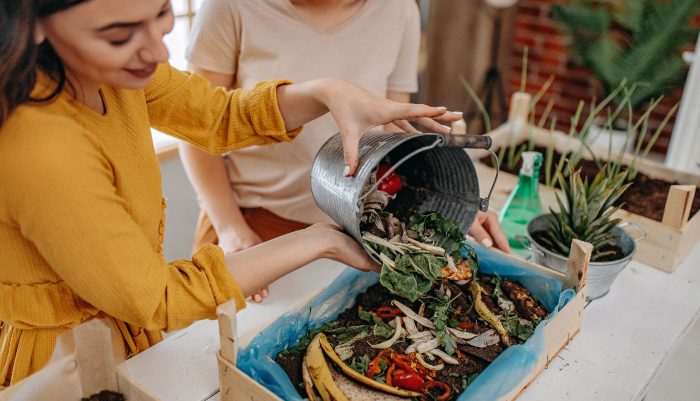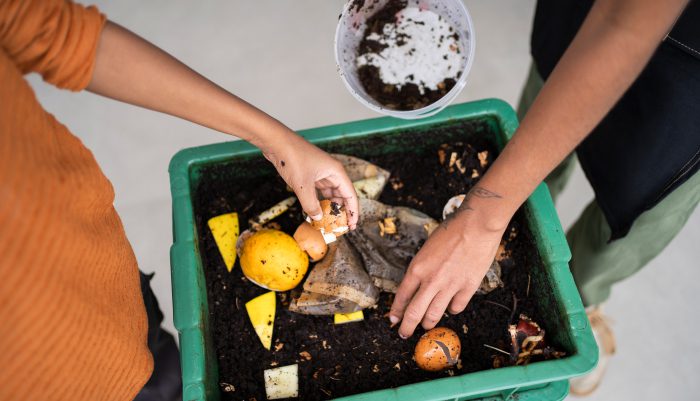You compost, he composts, we compost.
Learn about it and join a new way of recycling.

What would be your reaction if we told you that almost everything we usually consider as garbage could contribute to the environment? We could somehow change the name of the concept “garbage” and see it as a new way of creating life.
This is what composting is all about. Beyond a temporary fashion that we can hear about, this alternative has become increasingly common. If you haven’t noticed it, ask yourself the question too, and you’ll see that more than one person from your circle has joined this initiative.
READY TO KNOW MORE?
Composting is a natural process where all waste and organic materials decompose in a controlled manner to create a new fertilizer that serves as food to generate more life in the future.
In simple words, your orange peel or your scrambled eggs’ shells, an apple core, food scraps and even leaves can be transformed into the ideal base to produce them again from scratch.
Then, suppose you are in a sustainable plan. In that case, you already have your recycling area, and you have realized that you are reducing your average garbage by a significant amount. Let’s tell you that composting could increase this reduction by up to 80%. Although it’s not difficult, it requires complying with the balance between water and air to guarantee a faster decomposition. Then, the microorganisms present in the soil or waste are responsible for the organic material degradation until it’s reduced to particles.
NOW, GET INFORMED:
If you have already started thinking about this idea, you can begin by finding out the basics, that is, what waste is or isn’t compostable and its categorization (wet waste such as vegetables and fruits or dry waste, based on vegetation, wood and leaves). Then, you can picture the ideal size of your compost. Another element to consider is compost ventilation. As we explained above, it’s critical to assure a balance so the water can be discharged, not producing foul odors and making the process more productive.
Our recommendation to start is building and creating home compost by yourself or with your family so that you can begin this new adventure with a learned habit.

PATIENCE GIVES FRUIT
The planet belongs to everyone, and taking care of it is also a team task. It can allow future generations to have a better quality of life, flora and fauna continue to exist and grow again, and organic and inorganic waste don’t collapse every square meter of our land. If these arguments aren’t persuasive enough, let’s show you a list of advantages and benefits of composting that could end up convincing you:
- It helps improve air quality by reducing the emission of gases from waste.
- It dramatically reduces waste in landfills. 100 kg of organic waste makes it possible to obtain 30 kg of compost-based natural manure.
- It imitates nature by creating a “cycle of life,” making us part of it in an entire new way.
- It reduces the use of fossil fuels, transforming natural waste into organic fertilizer, helping to reduce our carbon footprint.
- It improves the soil quality, preventing its erosion since the neutral PH of the compost makes it ideal for using it as a fertilizer for any plants and vegetation.
- By joining this initiative, you create awareness and educate more people around you. This action will produce a multiplying effect: others will be able to do it too if you could do it!
What are you waiting for to start?






January 19, 2022
No Comments